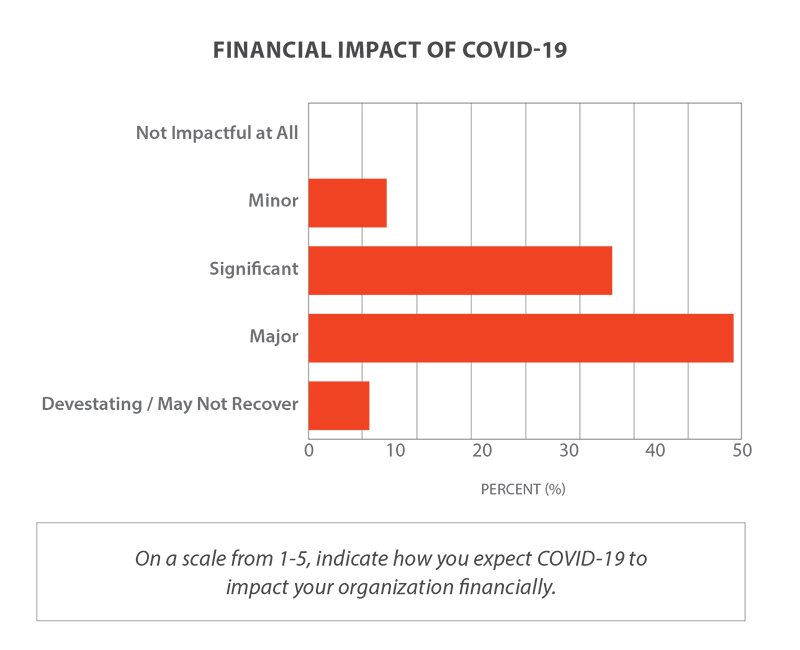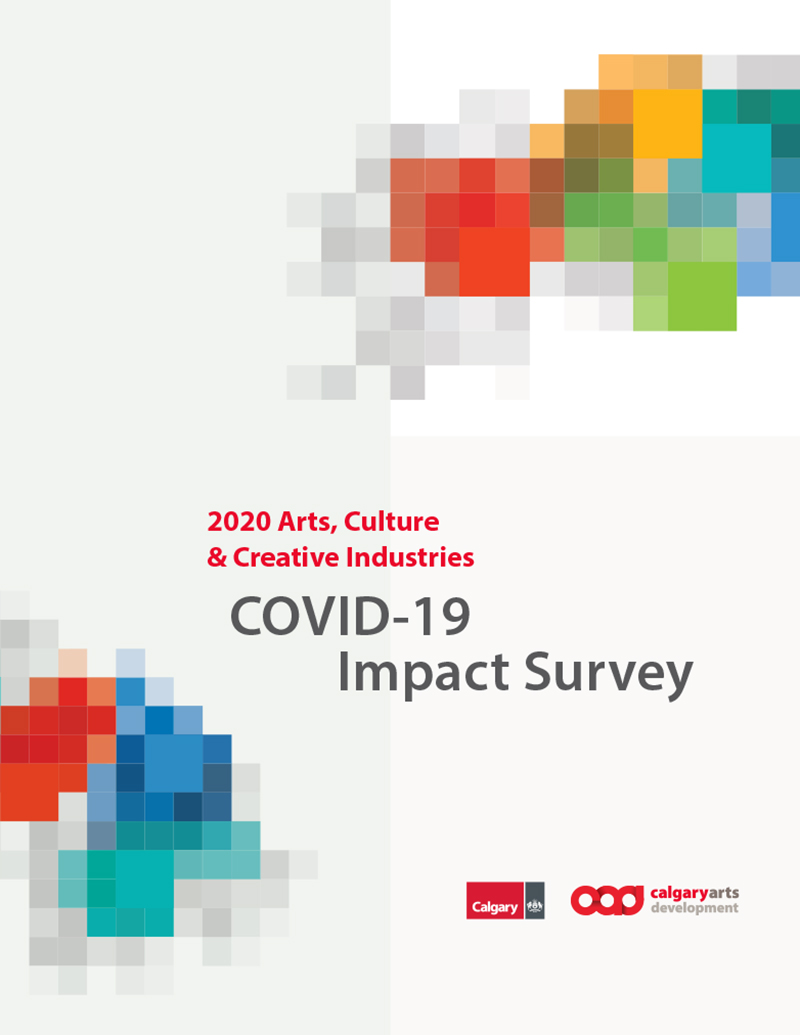COVID-19 Impact Survey
2020 Arts, Culture & Creative Industries
In May 2020, Calgary Arts Development, in partnership with Calgary Economic Development, The City of Calgary, and the Rozsa Foundation, undertook a survey of arts organizations in Calgary to better understand and plan for the COVID-19 disruption to Calgary’s arts, culture, and creative industries communities. A total of 140 organizations responded that the primary mandate of their organization is related to arts and culture.
Words like struggling, worry, fear, and disconcerting characterize the emotions organizations are feeling right now. These feelings are reflected by how organizations are dealing financially, programmatically, and structurally in their response to COVID-19.
This report is designed to help survey partners advocate for support and demonstrate the importance of the arts and culture industry. It is also designed to inform The City of Calgary, Calgary Arts Development, and Calgary Economic Development as they consider which scenarios will best support the sector through these unprecedented times.
Key Findings
Organizational Fragility
47% all organizations responded that they will be have to cease operations in the next six to 12 months if current conditions persist.
Cancelled Programming
A total of 6,339 events have been reported as cancelled that would have taken place between March 15 and August 31, 2020. Only 23% of organizations have found a way to modify existing programming to continue under existing conditions.
- 88% of organizations report that they have cancelled or postponed performances and exhibits.
- 78% of organizations have cancelled workshops and conferences.
The reduction in programming has resulted in a corresponding drop in expected audience sizes. Organizations are expecting an unprecedented 54% drop in attendance from 4,069,503 total attendees in 2019 to 1,856,891 total attendees in 2020.
Confidence remains very low that programming will return anytime soon.
- A majority of organizations report that they are either not confident at all or only slightly confident that they can produce any programming in 2020.
- 64% of organizations feel confident or extremely confident they will produce content on or after July of 2021.

Revenue Impact
Lost revenue in the current fiscal year, just from the 140 organizational respondents, is anticipated to be over $20.6M. There are over 300 non-profit arts organizations in Calgary, so the losses are likely significantly higher.
Organizations anticipate losing:
- $4.6M in lost sponsorships and donations.
- $7.7M in lost ticket sales.
- $8.3M in loss of other revenue.

Job Losses
Total staffing levels in reporting organizations was 1,525 positions in February, which dropped to 715 positions in May. 14 organizations that previously reported having staff in 2019 now report having no staff at all.
- Total staff positions has dropped 53% from February to May.
The longer organizations are forced to exist without any staff, the more difficult it will be to reopen. It will also be more likely that staff leave the sector or relocate to locations where they are able to find work, also making staffing organizations in the future difficult.
Impact on Artists
As a result of cancelled programming, organizations will be hiring fewer artists. Organizations reported that they were originally planning on hiring 4,274 artists between March 15 and August 31, 2020 that number has been reduced to 795.
- Organizations report planning on hiring 81% fewer artists.
Artists were already in a precarious situation before the loss of these opportunities. Most Calgary artists were already earning low individual and household incomes. Gender and ethnicity further impact financial precariousness.
Perceptions of the Arts & the Economy
85% of organizations responded that they anticipate other arts organizations in a similar artistic discipline locally will be in a worse position in a year and 85% report thinking that the arts locally in general will be in a worse position in a year.
- 75% of respondents think the Canadian economy will get worse over the next year.
- 85% think the local economy will get worse over the next year.
Equity, Diversity, Inclusion, and Accessibility
Intersectionality—the ways individuals get categorized by things such as race, class, and gender to create overlapping systems of disadvantages—is a critical concept in understanding the work that needs to be done to recover from the COVID-19 disruption. Many are concerned that recent yet insufficient gains in advancing equity in the arts will be lost during this crisis.
Calgary Arts Development recognizes that current funding models have been based on a colonial system of granting, and the goal of recovery is not to return to a previously inequitable system. We will not move towards Reconciliation, ensure the recognition that Black Lives Matter, or make progress in any other measure of equality when trying to return to an inequitable ableist “normal” that excluded many.
Even this report is written with a focus on Western forms of knowledge, when we are trying to expand our research capabilities at Calgary Arts Development to include ways of knowing previously marginalized.
Inequity exists both at the organizational and individual level. Previous Calgary Arts Development studies show gender and ethnicity further impact the financial precariousness of individuals. Recent statistics from the Center for Disease Control indicate that racial and ethnic minorities face a disproportionate number of illness and deaths from COVID-19.
Disabled arts professionals report real concerns both under working conditions organizations have implemented now as well as what conditions will be like when organizations attempt to recover.
A movement towards resilience in the arts at this time will only be successful if centered on the core goal of creating an equitable arts ecosystem.
Download the full publication:

